Amazon Web Services (AWS) is the most popular cloud computing platform. It offers a wide range of services, including computing power, storage, network, and databases. The platform's popularity is reflected in the increasing number of professionals seeking AWS certifications to demonstrate their expertise in working with it.
This guide will explore the different AWS certifications, help you choose the right path, and provide the strategies you need to succeed on the exam.
Benefits of AWS Certifications
AWS certifications offer a recognized way to validate and showcase expertise in cloud computing using Amazon Web Services. They are a testament to your dedication and expertise.
Below are some of the benefits that AWS certifications offer:
- Career Advancement: AWS certifications are highly sought-after by employers. Earning one can significantly boost your resume and open doors to better positions and projects. According to a study by Global Knowledge, 20% of their respondents reported a salary raise after getting certified.
- Credibility and Expertise: The rigorous nature of AWS certifications ensures a strong foundation in cloud best practices. Earning a certification validates your knowledge and positions you as an expert in the eyes of potential employers and clients.
- Staying Relevant: The cloud landscape is constantly evolving; AWS certifications help you stay ahead of the curve by keeping you updated on the latest services and features.
The AWS Certification Landscape
The AWS certification landscape is vast and complex, with multiple paths catering to different skill sets and career goals. Here's a breakdown of the major categories:
Foundational
- AWS Certified Cloud Practitioner: This is the entry-level certification, ideal for individuals seeking to gain a broad understanding of AWS concepts and services. It's a great starting point for those new to the cloud or who want to build a foundation before pursuing more specialized certifications. ENROLL in the AWS Cloud Practitioner course today!
Associate
- AWS Certified Solutions Architect - Associate: This is the most popular AWS certification, focusing on designing and deploying cloud solutions on AWS. It's a great choice for aspiring cloud architects, developers, and anyone involved in building and managing cloud infrastructure.
- AWS Certified Developer - Associate: This certification targets developers seeking to build and deploy applications on AWS. It covers key services like Lambda, API Gateway, and DynamoDB.
- AWS Certified SysOps Administrator - Associate: This certification focuses on managing and operating AWS infrastructure, including security, networking, and monitoring. It's ideal for system administrators, DevOps engineers, and anyone responsible for the day-to-day operations of AWS resources.
Professional
- AWS Certified Solutions Architect - Professional: This certification is for experienced cloud architects seeking to design and deploy complex cloud solutions at scale. It requires a deep understanding of AWS services and best practices.
- AWS Certified DevOps Engineer - Professional: This certification targets professionals who want to automate and manage the entire software development lifecycle on AWS. It covers concepts like continuous integration and delivery (CI/CD), infrastructure as code (IaC), and security automation.
Specialty
- AWS Certified Security - Specialty: This certification is for security professionals who want to design, implement, and manage secure cloud solutions on AWS. It covers topics like identity and access management, data encryption, and security auditing.
- AWS Certified Machine Learning - Specialty: This certification is for machine learning practitioners seeking to build and deploy machine learning models on AWS. It covers services like Amazon SageMaker and Amazon Rekognition.
- AWS Certified Advanced Networking - Specialty: This certification is for network engineers who can design, implement, and manage complex network architectures on AWS. It covers topics like VPC, Direct Connect, and AWS Transit Gateway.
Check out KodeKloud’s AWS Courses.
Choosing the Right Path
Don't get caught up in the frenzy of collecting every AWS certification. Here's a strategic approach to pick the right one for you:
- The first step is to identify skills you want to develop. Evaluate your current skill set and experience with AWS. Are you strong in core concepts, or do you have a specific area of expertise?
- Also, consider your career goal. Where do you see yourself in the next few years? Do you want to become a cloud architect, a security specialist, or a DevOps engineer? Once you have a clear understanding of your goals, you can choose the certification path that aligns with your interests and career aspirations.
- If you're currently employed, consider your company's AWS usage and specific needs. Aligning your certification with their cloud strategy can be mutually beneficial.
Not sure which AWS certification is right for you? Use our AWS Learning Path to choose a suitable learning path based on your experience.
AWS Certifications Tips
The journey to AWS certification is a marathon, not a sprint. It requires dedication, discipline, and a strategic approach. Here are some key tips for success:
- Start with the Fundamentals: Before diving into any specific certification, ensure you have a solid understanding of the cloud and core AWS concepts. Familiarize yourself with the AWS shared responsibility model, the different service categories, and the basic principles of cloud computing. There are numerous resources available online, including the AWS documentation.
- Choose the Right Study Materials: There are countless study materials available for AWS certifications, ranging from online courses to practice exams to physical books. It's important to choose materials that align with your learning style and the specific certification you're pursuing.
- Practice, Practice, Practice: The key to success in any certification exam is practice. Work through practice exams, build hands-on labs, and test your knowledge regularly. This will help you identify your strengths and weaknesses and focus your study efforts on the areas where you need improvement. Get hands-on experience with our AWS Playground and start practicing now.
- Join the Community: Don't underestimate the power of community. Connect with other AWS enthusiasts, share your experiences, and learn from each other. There are lots of online forums, Slack channels, and meetups dedicated to AWS. Participating in these communities can provide valuable insights, support, and motivation. Connect with other DevOps enthusiasts and professionals by joining our Community.
- Embrace the Exam Experience: The AWS certification exams are designed to test your knowledge and understanding of the AWS platform. Familiarize yourself with the exam format, the types of questions you can expect, and the time constraints. Practice taking mock exams under timed conditions to simulate the real exam experience.
Check out Crack AWS Certifications Like a Pro: 7 Game-Changing Steps You Need to Know for comprehensive strategies to prepare effectively.
The Certification vs. Real-World Experience Debate
The perennial question: are certifications enough? The answer, as with most things in life, is nuanced. Certifications can be a valuable stepping stone, but they are not a substitute for real-world experience. Think of them as a foundation upon which you build your practical skills.
Real-world experience allows you to apply your knowledge in real-world scenarios, troubleshoot issues, optimize solutions, and learn from your mistakes. It's through this hands-on experience that you develop the critical thinking skills, the problem-solving abilities, and the practical know-how that truly sets you apart.
The ideal approach is to combine the two:
- Use certifications as a starting point: They provide a structured framework for learning and a benchmark for your knowledge.
- Gain real-world experience: Build projects, participate in hackathons, contribute to open-source projects, or take on real-world tasks at work.
- Continuously learn and grow: The cloud landscape is constantly evolving, so it's essential to stay up-to-date with the latest technologies and best practices.
Conclusion
Achieving an AWS certification is a significant accomplishment, but it's just the beginning of your journey. The cloud world is dynamic and ever-changing, so it's crucial to stay engaged, keep learning, and continually expand your skills. Use your certifications as a springboard to explore new technologies, push your boundaries, and become a true cloud expert.
Getting AWS certification is a challenging but rewarding path. Remember, it's not just about the certification itself but about the knowledge and skills you gain along the way.
Want to master key AWS services? Check out KodeKloud’s AWS Learning Path. Our comprehensive courses are designed to equip you with the knowledge and hands-on experience needed to excel in your AWS certification journey and beyond.



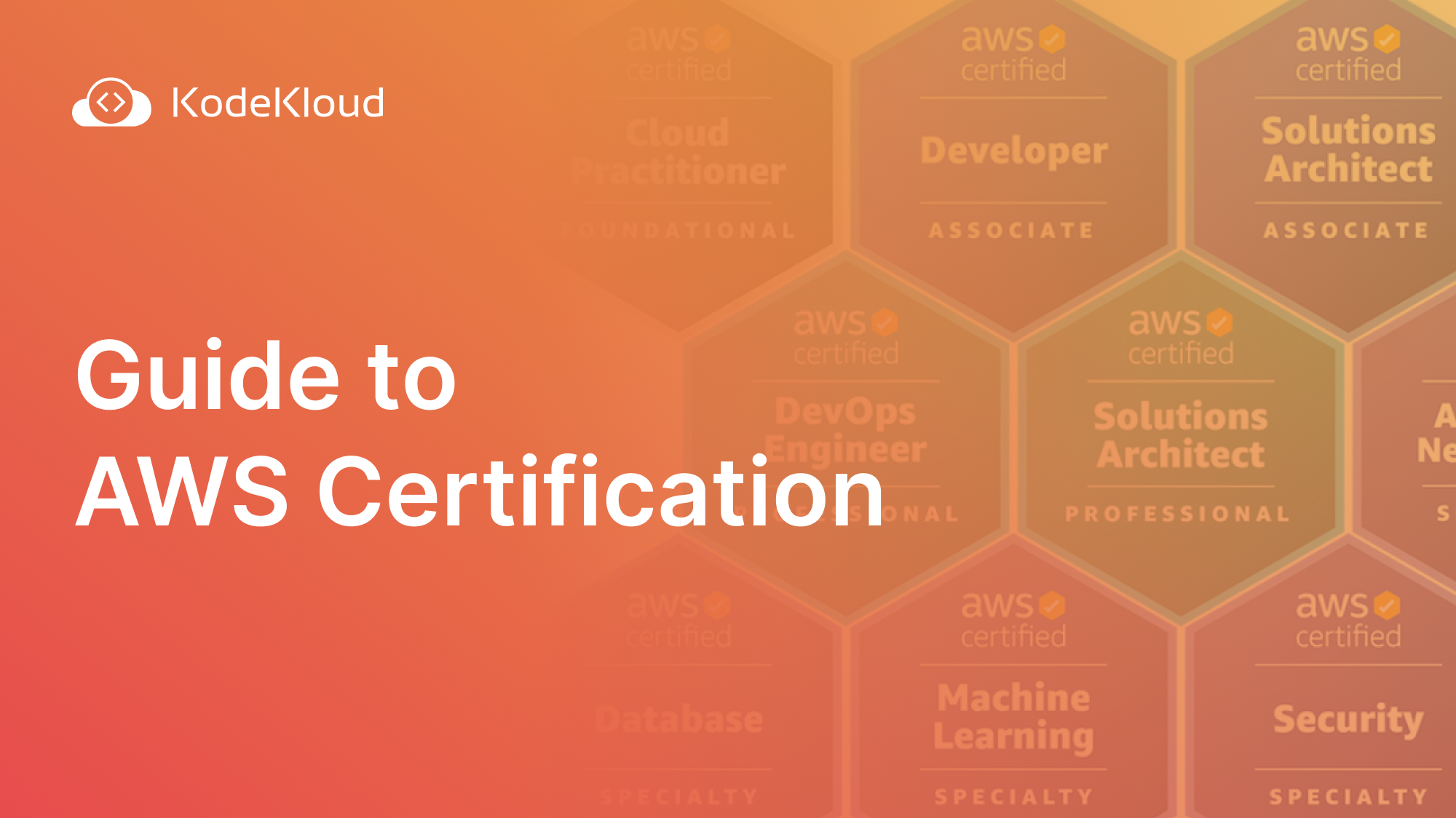
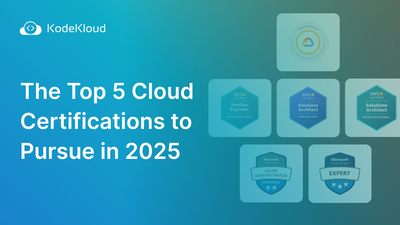
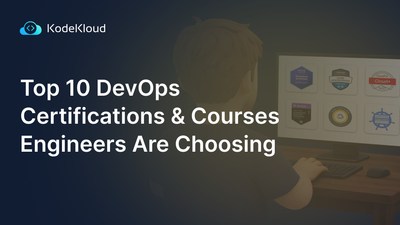

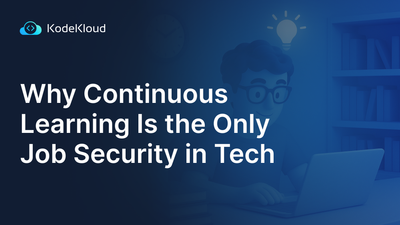

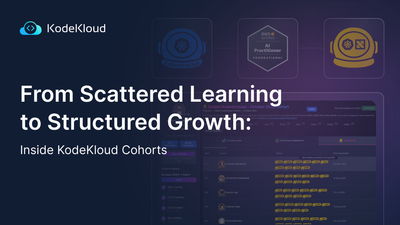
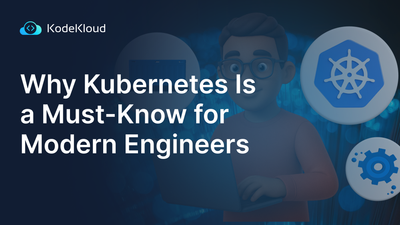

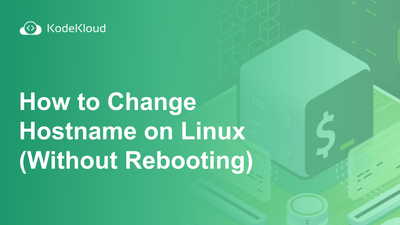


Discussion